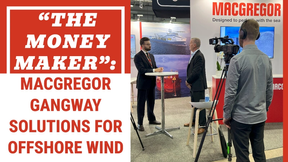Brazil's container port operator tries to avoid 'congestion surcharge'
TCP, a subsidiary of China Merchants Port is trying to discourage a logistics company from adding a surcharge to outgoing cargos in South America's biggest container terminal. TCP Commercial Director Carolina Brown confirmed this.
The $150 surcharge by France's logistics firm CMA CGM, which will take effect July 1, may impact the cost to ship goods through Brazil’s main refrigerated-container terminal, the world’s largest chicken export corridor.
Brown, speaking to Reuters on Wednesday evening, said: "We've already contacted CMA and asked for clarifications of the measure as well as for them review it."
CMA has not responded to multiple requests for comment.
The company announced this surcharge last weekend, citing "congestion at Paranagua Port". This move highlights the logistical challenges Brazil faces as a world-class farm nation and one of ten largest economies in the world.
CMA announced that the surcharge will apply to all cargo heading to the U.S. East Coast and Gulf Coast, Canada, Mexico, Central America, etc.
Brown stated that paper, wood, and refrigerated consignments may be affected by the surcharge if it is confirmed.
The executive stated that Paranagua, and other Brazilian container port, were experiencing a surge in the demand. This, coupled with operational contingencies in competing terminals located in Santos, and Santa Catarina, has created "a perfect storm."
Felipe de Franca is the manager of TCP's operations. He said that more demand has pushed up waiting times for ships from an average of 3.5 to nearly 48 hours. This was a record at Paranagua. He said that the waiting time at Paranagua’s container terminal has dropped to 12 hours, while ships at competing hubs are still facing a one-week wait.
Brown stated that Paranagua’s container terminal also receives ships from other ports and diverts cargo.
She said, "We operate without any operational restrictions." A surcharge, on the other hand, does not reflect the level of service we provide. (Reporting and editing by Shinjini Ganuli; Ana Mano)








